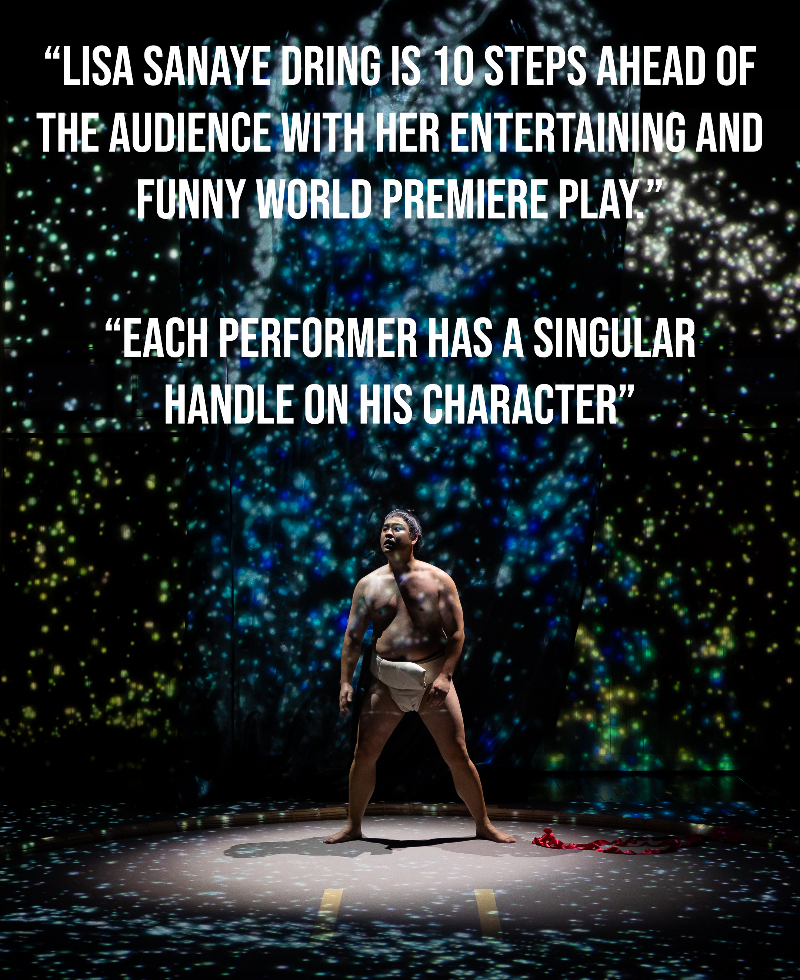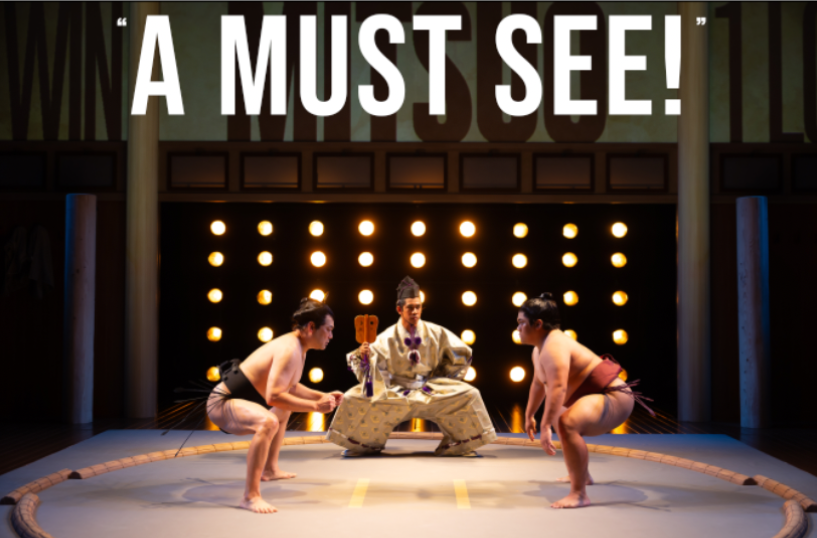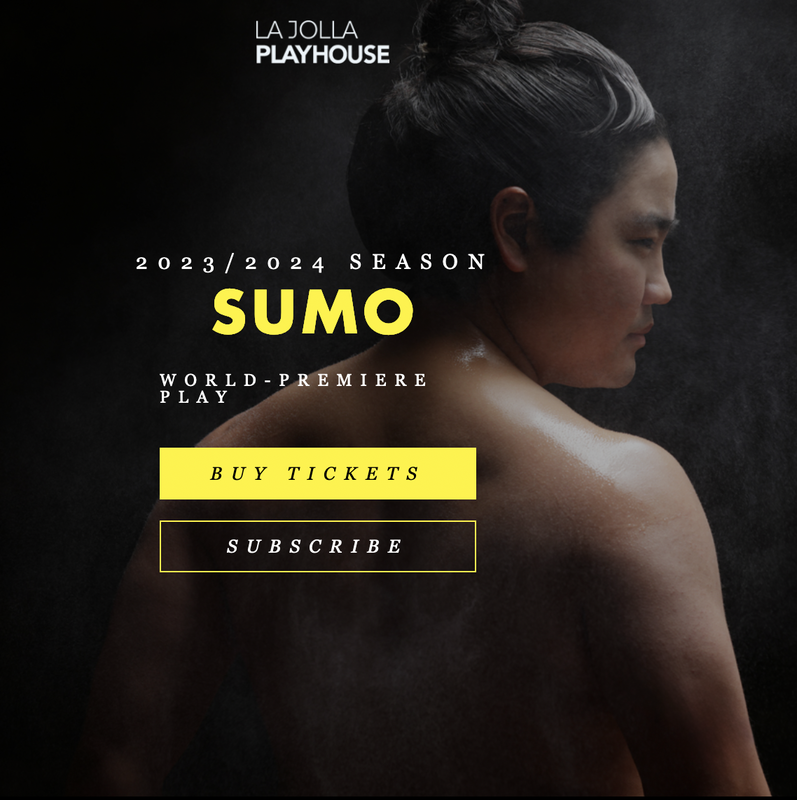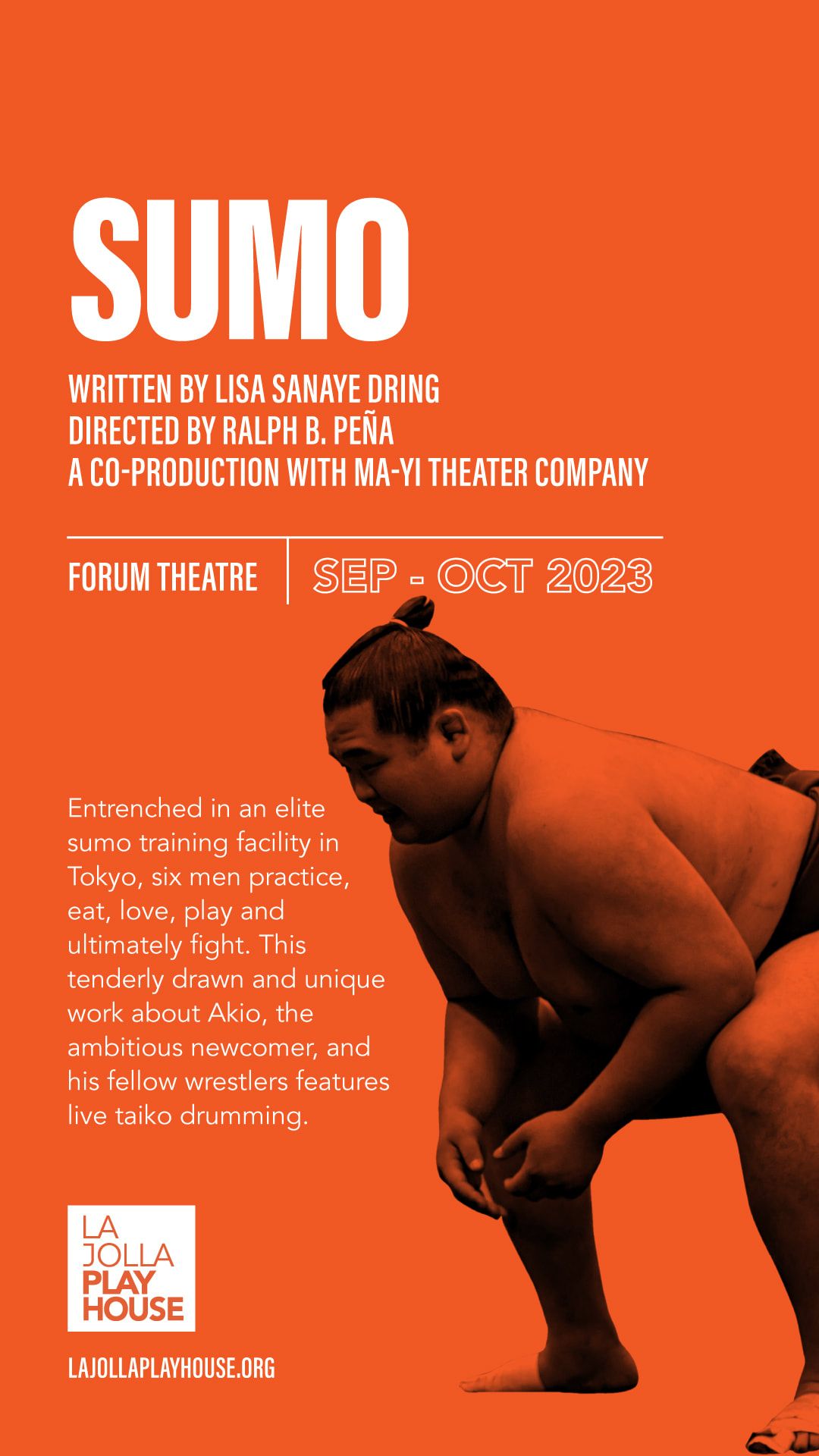Winner of an Edgerton Award
www.broadwayworld.com/article/HELLS-KITCHEN-REDWOOD-INFINITE-LIFE-and-More-Win-Edgerton-Foundation-New-Play-Awards-20231218?fbclid=IwAR1t3e6k4eJUcZdBqYeRF8rfaxFNsDwqmVu3a_4r7SvDDETg2JGEQ_XTNzU
Winner of BEST PLAY at BroadwayWorld San Diego Awards
https://www.broadwayworld.com/san-diego/article/Winners-Announced-For-The-2023-BroadwayWorld-San-Diego-Awards-20240118
www.broadwayworld.com/article/HELLS-KITCHEN-REDWOOD-INFINITE-LIFE-and-More-Win-Edgerton-Foundation-New-Play-Awards-20231218?fbclid=IwAR1t3e6k4eJUcZdBqYeRF8rfaxFNsDwqmVu3a_4r7SvDDETg2JGEQ_XTNzU
Winner of BEST PLAY at BroadwayWorld San Diego Awards
https://www.broadwayworld.com/san-diego/article/Winners-Announced-For-The-2023-BroadwayWorld-San-Diego-Awards-20240118
TICKETS:
https://lajollaplayhouse.org/show/sumo/
Entrenched in a training facility for sumo wrestlers, six men practice, eat, love, play and ultimately fight. Mixing ancient, divine ritual with the guttural ferocity of competition, they struggle to carve themselves – and one another – into the men they dream of being. SUMO is a story about the pursuit of the impossible.
Workshopped at La Jolla Playhouse as part of their 2021 DNA New Works Series. Finalist for the O'Neill Playwrights Conference and semi-finalist for the Bay Area Playwrights Festival. Initially written in East West Players' Playwrights Group, also received support from the MacDowell.
Read the most current draft of SUMO here.
https://lajollaplayhouse.org/show/sumo/
Entrenched in a training facility for sumo wrestlers, six men practice, eat, love, play and ultimately fight. Mixing ancient, divine ritual with the guttural ferocity of competition, they struggle to carve themselves – and one another – into the men they dream of being. SUMO is a story about the pursuit of the impossible.
Workshopped at La Jolla Playhouse as part of their 2021 DNA New Works Series. Finalist for the O'Neill Playwrights Conference and semi-finalist for the Bay Area Playwrights Festival. Initially written in East West Players' Playwrights Group, also received support from the MacDowell.
Read the most current draft of SUMO here.






